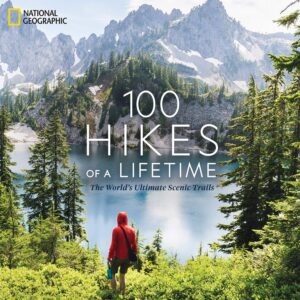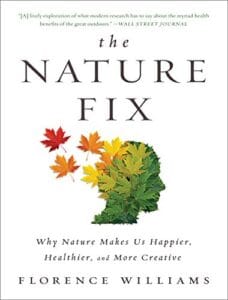Now loading...
Learn from Traveling to explore the Classroom of the World
In a world where classrooms often confine learning within four walls, the realm beyond offers a vast expanse of untapped educational experiences. Traveling, with its kaleidoscope of cultures, landscapes, and challenges, emerges as an unconventional yet profound classroom. In this exploration, we delve into what we can learn from Traveling but not in the Classroom, uncovering the advantages, insights, and personal growth that come from stepping outside the traditional educational setting.
Discover the unique insights and advantages gained from traveling that go beyond traditional classroom learning. Explore the impact of experiential education, real-world scenarios, and personal growth.
Broadening Horizons: The Advantages of Learning Through Travel
1. Cultural Immersion: Becoming a Global Citizen
Traveling exposes individuals to diverse cultures, languages, and traditions. Immersing in local customs fosters empathy, tolerance, and a broader perspective on global issues.
 100 Hikes of a Lifetime: The World’s Ultimate Scenic Trails
100 Hikes of a Lifetime: The World’s Ultimate Scenic Trails
Filled with beautiful National Geographic photography, wisdom from expert hikers like Andrew Skurka, need-to-know travel information, and practical wildlife-spotting tips, this inspirational guide offers the planet’s best experiences for hikers and sightseers. From short day hikes–California’s Sierra High Route, Lake Agnes Teahouse in Alberta, Norway’s Mt. Skala–to multiday excursions like Mt. Meru in Tanzania and multi-week treks (Egypt’s Sinai Trail, Bhutan’s Snowman Trek, and the Bibbulum Track in Australia), you’ll find a hike that matches your interests and skill level. Crossing all continents and climates (from the jungles of Costa Rica to the ice fields in Alaska’s Kenai Fjords National Parks), as well as experiences (a wine route through Switzerland or moose spotting on the Teton Crest Trail in Wyoming,) there is a trail for everyone in these pages. So pack your gear and lace your boots: this comprehensive and innovative guide will lead you to experience the best hikes of your life!
2. Problem-Solving in Real Time: Adapting to the Unpredictable
Navigating unfamiliar environments prompts quick thinking and adaptability. Problem-solving becomes an instinctive skill as travelers handle unexpected situations.
3. Connecting History to Reality: Lessons Beyond Textbooks
Historical landmarks come alive as travelers stand in the midst of the past. Walking through ancient ruins or iconic sites deepens understanding and humanizes history.
Embracing Experiential Education: Learning Beyond the Lecture
4. Language Acquisition: Conversing with the World
Engaging with locals offers an immersive language learning experience. Conversations in cafes, markets, and streets enhance communication skills, promoting cultural exchange.
5. Nurturing Independence: Stepping Out of Comfort Zones
Travelers make decisions independently, nurturing self-reliance. From booking accommodations to navigating transportation, self-sufficiency blossoms.
6. Ecological Awareness: Lessons in Sustainable Living
Experiencing fragile ecosystems fosters environmental consciousness. Witnessing the impact of climate change firsthand instills a commitment to sustainable practices.
 The Nature Fix: Why Nature Makes Us Happier, Healthier, and More Creative
The Nature Fix: Why Nature Makes Us Happier, Healthier, and More Creative
From forest trails in Korea, to islands in Finland, to eucalyptus groves in California, Florence Williams investigates the science behind nature’s positive effects on the brain. Delving into brand-new research, she uncovers the powers of the natural world to improve health, promote reflection and innovation, and strengthen our relationships. As our modern lives shift dramatically indoors, these ideas―and the answers they yield―are more urgent than ever.
Beyond the Horizon: Future Scenarios of Non-Classroom Learning
7. Technological Integration: Virtual Reality-Enhanced Travel Learning
Virtual reality offers an immersive classroom alternative. Students can virtually visit historical sites or explore cultural landmarks, enhancing educational engagement.
8. Collaborative Learning: Digital Communities of Travelers
Online platforms connect travelers and encourage knowledge sharing. Digital communities become hubs for insights, advice, and perspectives from around the globe.
Making Every Journey Educational: Maximizing Travel Opportunities
9. Curating Cultural Experiences: Embracing Local Traditions
Research local customs and engage in cultural activities to grasp authenticity. Participate in cooking classes, festivals, or craft workshops to connect with local heritage.
10. Documenting the Journey: Creating a Personal Learning Journal
Maintain a travel journal to record experiences, reflections, and insights. Documenting the journey preserves memories and captures transformative moments.
The Globe-Trotting Classroom of Wisdom
As the sun sets on another chapter of exploration, the lessons learned from traversing new horizons echo with resonance. What we can learn from Traveling but not in the Classroom unveils the classroom without walls, where cultures, challenges, and connections become the mentors. As we embrace experiential learning, we recognize that the world itself is an educator, nurturing empathy, resilience, and adaptability. Through travel, we embark on a journey not just through landscapes but through the corridors of self-discovery, understanding, and growth. The world is our curriculum, and each adventure is an opportunity to graduate into a wiser, more compassionate global citizen.
Now loading...





